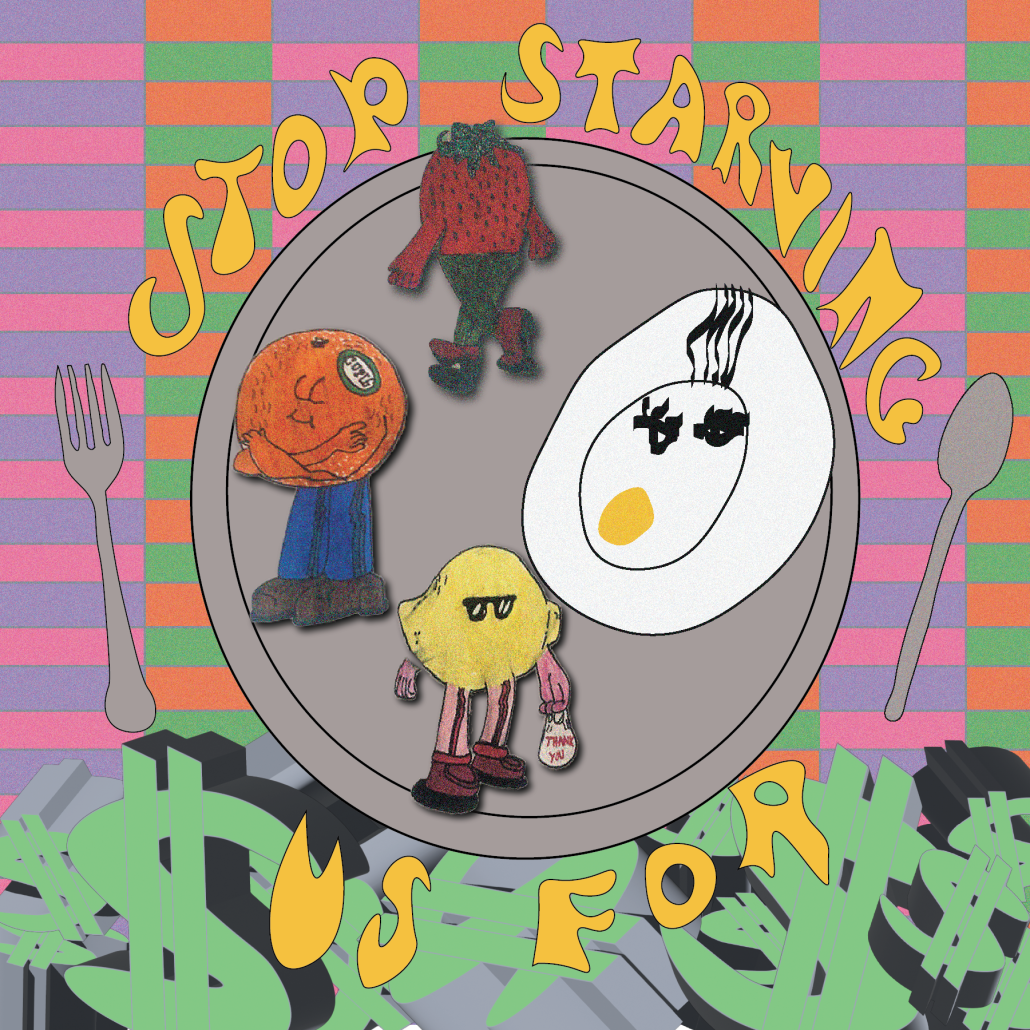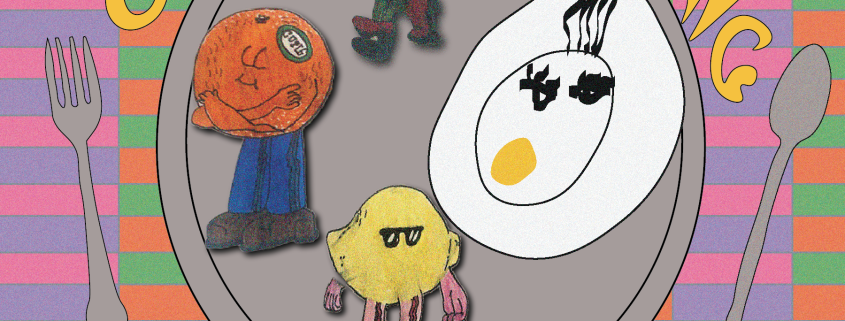The Girls Are Gagged: Rampant hunger in South Central — business as usual

I hear USC students’ stomachs rumble all the time. While the LGBTQ+ Student Center bloats me with crackers and Cheetos, I wonder what the gusher-less het kids do. Is this what it means to be a Trojan? To have to choose between spending $12 for an acai cup and going hungry?
Considering the widening wealth gap — the lowest 50% of earners own merely 3.3% of wealth — we shouldn’t be surprised that food access is nationally poor right now. But for a country that boasts prosperity, it’s embarrassing. According to the Washington Post, “41% of college students in the United States report limited or uncertain access to food in the last 30 days,” while in Los Angeles County, 24% of households are food insecure as of July 2022.
Studies have shown that access to healthy, affordable food is intertwined with countless factors pertaining to our quality of life and can impact students’ GPA and likelihood of graduation. It’s not just about hunger, it’s about survival — in an already overwhelming and stressful climate.
For those who study urban planning or policy, you might see this as by design. Specific policy and design decisions have been made to prioritize profit over access to meals, using a variety of strategies: inflating costs, limiting where food can be found and restricting who it can be shared with.
Students like Jonathan Antonio, a first-generation and low-income senior majoring in public policy, claim that the construction of the USC Village was the beginning of this long-standing pattern of blocking food access. USC Village raised rent prices astronomically, leaving all but one local business displaced, despite promises made by USC to protect local establishments. Superior Grocers, a popular grocery chain in South Central, has been replaced by more expensive places such as Trader Joe’s and Target — which do not cater to the needs of the community in which we gentrify.
To the community members like Antonio, this change sent a very specific message. A part of USC’s larger gentrification footprint, it was an effort to make USC feel more like a college town, but also a displacement tactic — a strategic way to control local migration. When people in power want to push people out of the neighborhood, limiting food access is a fast-track solution.
Grace Zhang, a junior majoring in American studies and ethnicity, defines food apartheid as a structural commitment to creating this in-access to maintain profits and power, one that “systematically disinvests into Black, Latine and marginalized communities.”
Low-income and graduate students are among groups disproportionately affected by the inflated costs of food at USC. Grad students, which are underpaid by the University, are disconnected from meal plans and also frequently have later classes, presenting an even more limited set of options.
This year, the University implemented new freshman meal plans — a clear response to student organization efforts last year (Trojans Give Back, Student Coalition Against Labor Exploitation and AYU Direct) to donate meal swipes. These meal plans prevent students from being able to donate meals, aside from their seven guest swipe-ins.
For students like Dominic Jocas, founder of AYUDirect, donating extra food created the opportunity to easily connect with members of the community — sharing more than just a meal.
“That food that was donated from USC was kind of like that central link to creating connections … the currency almost to get your foot in the door of getting to talk to them”, said Jocas, who cited the change in plans as making it a lot harder to engage with people with unmet needs.
The Undergraduate Student Government recently hosted a roundtable with campus dining. When asked by Hospitality and Dining directors about mistreatment of dining staff workers and recent food decisions which block accessibility, USC followed its apolitical script, saying a whole lot of nothing and, of course, deflecting accountability.
This deflection of accountability is shameful, yet it is a reflection of USC’s — and many colleges’ — broken systems, which are fragmented and decentralized. Consider this extremely flawed logic: The department responsible for making money off food and feeding students (Campus Dining) is far removed from the department that makes sure students are fed (Student Basic Needs).
The USC Board of Trustees should make more investments to repair the wounds of their financially extortive actions. Whether that be reversing the freshman plans to make donating up to 19 meals a week universally possible and allowing swipes to be used anywhere on campus, or doubling the funding for Student Basic Needs and the First-Generation Success Center. Increasing pay and time-off benefits for their dining staff are also solutions USC should take. But in a world where business executives change Verde to Taco-Taco to appeal to white people, we can’t expect these same executives to care about food access, especially not food access in a predominantly low-income, brown community. It’s unrealistic.
Thus, as we advocate for funding reallocation, we should also financially disinvest from USC. We should stop paying for Seeds sushi, which, let’s BFFR … you don’t have to tell me twice!
We should invest in organizations like SCALE, who refuse to blatantly ignore these issues by not just advocating but coming up with attainable community-led initiatives. Their most recent event was a Mardi Gras cookout where they distributed food, hygiene products and clothes to the community by raising money with AYUDirect on social media. They also normalize having conversations about unmet access needs and CalFresh — working against an elitist, individualist, capitalist culture that assumes wealth.
If students taking classes and working jobs to support themselves can contribute positively to food access in the community, why can’t the University?
Arjun Bhargava is a sophomore writing about differing identities and their role in our larger political & cultural landscape. Their column, “The Girls are Gagged” usually runs every other Friday.

